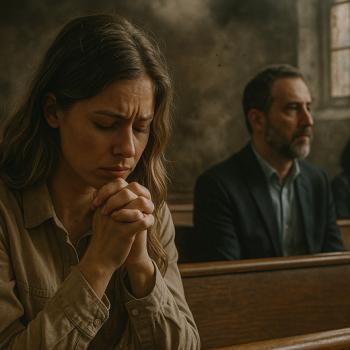
Solomon’s prayer in II Chronicles 6:14-21 shows the power of prayer and God’s forgiveness. He stood before Israel, lifted his hands, and called on the Lord. His words highlighted God’s greatness, faithfulness, and the need for forgiveness. This prayer teaches us how repentance restores our relationship with God. When we seek forgiveness, we receive His mercy and experience His love.
Acknowledging God’s Greatness
Solomon begins by praising God’s power and faithfulness. He prays, “Lord God of Israel, there is no God in heaven or on earth like You, who keep Your covenant and mercy with Your servants who walk before You with all their hearts” (II Chronicles 6:14, NKJV). He starts with praise to set the foundation for his prayer. This reminds us that true repentance begins with recognizing who God is. We must understand His mercy and faithfulness before asking for forgiveness. By doing this, we humble ourselves and acknowledge His authority over our lives.
Remembering God’s Promises
Solomon recalls God’s covenant with his father, David. He prays, “You have kept what You promised Your servant David my father… You have both spoken with Your mouth and fulfilled it with Your hand, as it is this day” (II Chronicles 6:15, NKJV). He emphasizes that God always keeps His promises. This builds confidence in seeking forgiveness. If God was faithful to David, He will be faithful to all who seek Him. His unchanging nature assures us that He will hear our prayers when we turn to Him with sincerity and humility.
Seeking God’s Presence
Solomon asks God to remain with His people. He prays, “May the Lord God of Israel be with us, as He was with our fathers. Let Him not leave us nor forsake us” (II Chronicles 6:16, NKJV). He understands that God’s presence is essential for His people. In the same way, repentance brings us back into God’s presence. When we confess our sins, we restore our connection with Him. His presence gives us guidance, strength, and peace in every situation.
Recognizing Human Sinfulness
Solomon acknowledges that everyone sins. He prays, “If they sin against You (for there is no one who does not sin), and You become angry with them… yet when they come to themselves… and repent, and make supplication to You… then hear from heaven” (II Chronicles 6:36-39, NKJV). He understands that sin is part of human nature, but repentance brings restoration. This reminds us that God does not expect perfection. Instead, He desires hearts willing to turn back to Him in humility and trust.
Extending Forgiveness to All
Solomon prays for foreigners who seek God. He says, “Moreover, concerning a foreigner, who is not of Your people Israel, but has come from a far country… hear from heaven Your dwelling place, and do according to all for which the foreigner calls to You” (II Chronicles 6:32-33, NKJV). He shows that God’s forgiveness extends to everyone. No matter where people come from, they can seek Him and receive His mercy. This truth reminds us that God’s love knows no boundaries, and His grace is for all who call upon Him.
Forgiveness and Leadership
Solomon’s prayer reflects his leadership and dependence on God. He knows that no leader can succeed without divine guidance. He seeks God’s mercy for himself and his people. This lesson applies today. Leaders in families, communities, and nations must seek God’s wisdom and forgiveness. True leadership requires humility, trust in God, and a heart willing to serve others with righteousness.
The Temple as a Symbol of Forgiveness
The temple represents God’s willingness to forgive and dwell among His people. Solomon prays, “And may You hear the supplications of Your servant and of Your people Israel when they pray toward this place. Hear from heaven Your dwelling place, and when You hear, forgive” (II Chronicles 6:21, NKJV). He emphasizes that forgiveness is not just an individual matter. Nations and communities must turn to God for healing and restoration. When people come together in repentance, God answers and brings peace.
The Need for Forgiveness Today
Solomon’s prayer remains relevant today. The world is filled with conflict and division. Forgiveness is essential for healing. Personal relationships, families, and societies can only find peace through repentance and humility. This prayer reminds us that forgiveness restores our connection with God and each other. When we seek forgiveness, we allow His grace to transform our hearts.
God’s Promise to Forgive
God promises to forgive when His people repent. Solomon’s prayer reflects II Chronicles 7:14, where God says, “If My people who are called by My name will humble themselves, and pray and seek My face, and turn from their wicked ways, then I will hear from heaven, and will forgive their sin and heal their land” (NKJV). This promise gives us hope. No matter how far we stray, God waits for us to turn back to Him.
A Personal Call to Repentance
Solomon’s prayer encourages self-examination and repentance. He intercedes for Israel, and we can do the same for ourselves and others. When we confess our sins, we draw closer to God and experience His grace. Prayer and repentance bring spiritual renewal and strengthen our faith. This act of humility allows us to receive God’s mercy.
The Church and Unity in Forgiveness
Solomon’s prayer calls believers to unity and humility. When Christians seek God’s forgiveness together, they show His grace to the world. The church becomes a place of healing, just like Solomon’s temple. It serves as a refuge where people find God’s love and restoration. This unity strengthens faith and brings hope to those in need.
Forgiving Others as God Forgives Us
Solomon’s prayer reminds us to extend forgiveness to others. Jesus taught, “Forgive us our debts, as we forgive our debtors” (Matthew 6:12, NKJV). Just as God forgives us, we must forgive those who hurt us. This act of grace heals broken relationships and reflects God’s character. When we forgive, we experience peace and freedom from resentment.
The Power of Solomon’s Prayer and God’s Forgiveness
Solomon’s prayer in II Chronicles 6:14-21 reveals the power of prayer and God’s forgiveness. God remains faithful, merciful, and eager to restore those who seek Him. As we reflect on Solomon’s words, let us seek God’s forgiveness in our lives. When we turn to Him, we receive peace and restoration that only He can provide.














